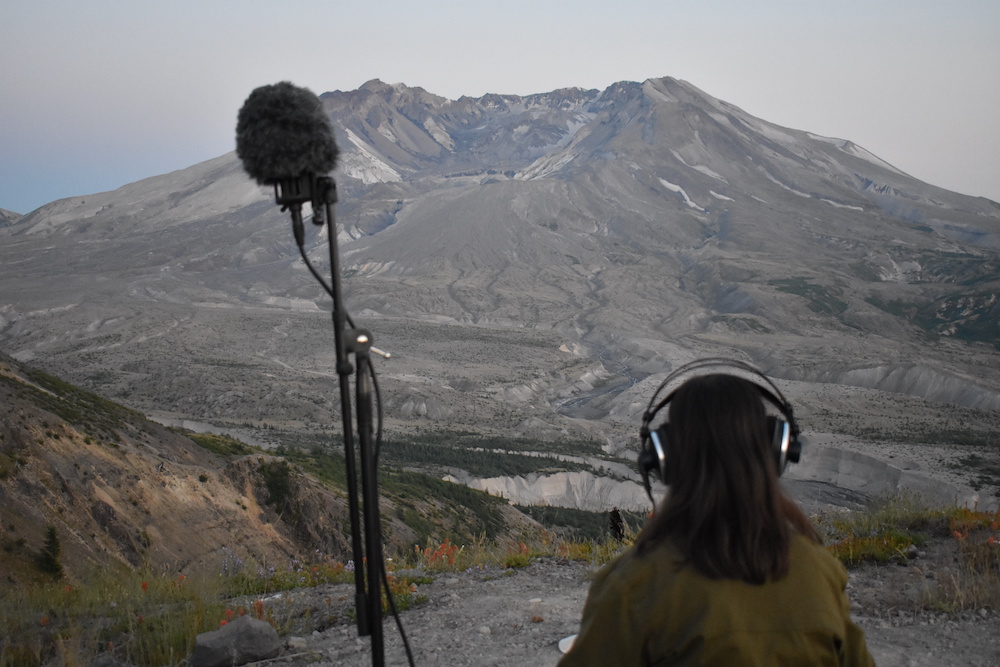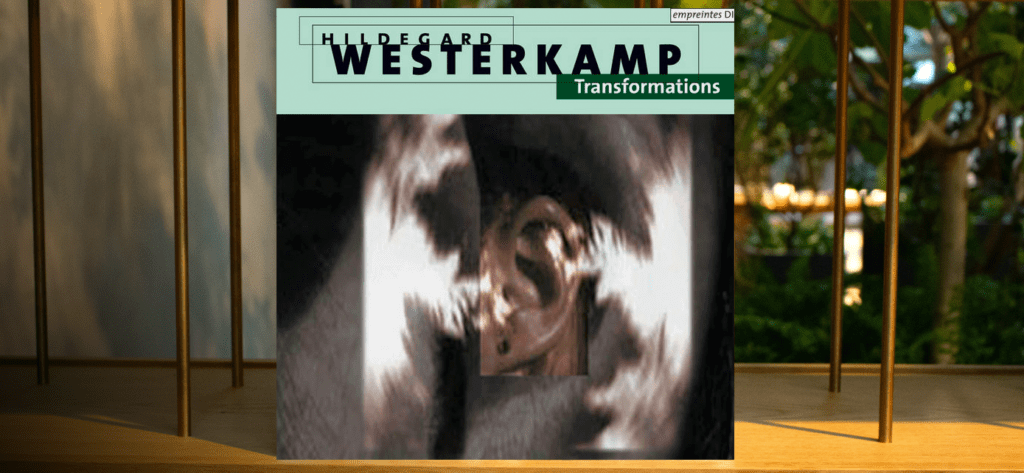Permanent Rotation is a series in which producers, DJs, and musicians go deep on the albums that have inspired them.
It was an invitation in 2017 that kicked off Patricia Wolf’s transition from making noisier forms of music—as a member of synth-pop-punk outfit Soft Metals, and dabbling in live techno with the likes of the late Silent Servant and Headless Horseman — to composing much gentler, ambient fare.
Tasked with creating a live reimagined score for Jean Cocteau’s Beauty and the Beast, Wolf was “forced to slow down and focus on the atmosphere of a scene.” Wolf also introduced field recordings into her work for the first time, “a rooster crowing, an arrow being shot, the guttural chanting of a monk, wine being poured into a glass.” What Wolf expected to be a one-off exercise quickly blossomed into a new obsession and one that suited her desire to step away from hard-partying clubland.
Living in Portland, Oregon, has provided an ideal setting for Patricia Wolf to expand her field recording practice. Many sound artists have influenced her along her journey, but perhaps none more so than Canadian composer Hildegard Westerkamp, and specifically her Transformations album. “Kits Beach Soundwalk” is the standout track for Wolf, in which Westerkamp tenderly narrates a scene from the Vancouver beach.
“I was struck by her ability to take a deceptively mundane recording and transform it into a poetic and exciting sound experience,” says Wolf. “At the beginning, it seemed that nothing too interesting was occurring, but through the narration of her careful listening perspective and her playful manipulation of the recording she revealed an underlying magic in the soundscape.”
In “Kits Beach Soundwalk”, the beach’s natural soundtrack is sometimes drowned out by the sounds of the city, to Westerkamp’s annoyance. “Suddenly, the background sound of the city seems louder again. It interferes with my listening. It occupies all acoustic space, and I can’t hear the barnacles in all their tininess,” she laments.
“She was critiquing what was being heard and where it’s coming from and the implications that it has on society,” says Wolf. “She manipulated the recording by removing the lower frequencies and anthropogenic sounds and then imagined what it might have sounded like before the industrial sounds were there.”
Via Westerkamp’s work, Wolf was turned onto the idea of tweaking the frequencies of field recordings as an alternative to modulating sounds created with her machines (Wolf is the official sound designer for Novation Peak and Summit synthesisers).
“It inspired me to experiment more with the sounds that I am recording, to not be afraid to manipulate them and to re-contextualise them,” she says. “I love how she takes listeners on a journey with her to explore each component of the soundscape, shows you how to play with it, focus on it, perceive it fully, to take sounds and separate them from the soundscape, bring them back together and also to reach inside your psyche to connect those sounds with dreams and memories.”
Wolf has also immortalised walks in song; she found one particular stroll in Croatia so delightful that she preserved field recordings from the excursion and added music to recapture her buoyant mood. “I guess it’s my way of expressing my inner emotions as I reflect on nature, and that’s a track that I would say shows a marriage of my music and my field recording practice, and the influence of Hildegard Westerkamp,” says Wolf of “Springtime in Croatia”.
Upon entering the world of field recording, Wolf felt slightly daunted initially. How would she determine what made a recording worthy of a wider audience? In the liner notes of Transformations, Westerkamp recounts her journey with a sampled raven’s cry in “Beneath the Forest Floor”. An attempt to turn the raven’s cry into a drumbeat failed; “it took a whole day to fly off into ‘electronic land’ before returning to the original raven call, finally really hearing it and letting it be what it was in the first place: a sound reminiscent of the drum,” Westerkamp wrote.
This disclosure encouraged Wolf to simply trust her own judgement; if she deemed a sound interesting, that was enough to warrant sharing it.
Through Westerkamp, she also learned to shake off apprehensions about the quality of her recording equipment, which can be “insanely expensive.” But Westerkamp has always privileged wonder and curiosity over fancy gear. “She said what matters is that you’re listening with your analytical mind and being really present with what you’re hearing,” says Wolf. “Westerkamp’s playful, non-clinical approach to sound is something that has allowed me to have fun with my practice instead of feeling like a scientist.”


Wolf’s releases and special projects since 2020 include documenting the soundscapes of a volcano to facilitate a virtual field trip for elementary students, a debut album that processed the recent losses of her mother-in-law and a close friend, and a sophomore album much lighter in tone and mood. Her next album is dedicated to birds, composed of musical responses to observing birds and field recordings of the birds themselves. Perhaps unsurprisingly, Wolf’s blooming passion for recording natural environments has made her more aware of and sympathetic to their inhabitants.
“I’ve become really conscious of the life that is all around us and it’s made me care more deeply for the world,” says Wolf, who has fixed deterrents to her windows to stop birds from flying into them and is cultivating a native plant garden at home to make it more hospitable to wildlife and improve the soundscape. It all traces back to the work of Westerkamp.
“She really broadened my horizons, from my art to my lifestyle,” says Wolf. “She represents a paradigm shift for me as an artist and I am so grateful that I encountered her work.”
Read more: Asha Puthli on Ella Fitzgerald
